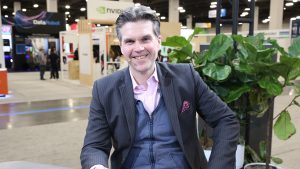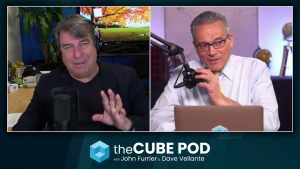7 More Casualties as Google Cleans House
![]() Over the years, our house gets cluttered with so much junk that eventually we have to let go of some stuff. Most of us find ourselves holding on to junk, thinking that we might need it again someday. But Google doesn’t seem to have a problem getting rid of the junk in their trunk.
Over the years, our house gets cluttered with so much junk that eventually we have to let go of some stuff. Most of us find ourselves holding on to junk, thinking that we might need it again someday. But Google doesn’t seem to have a problem getting rid of the junk in their trunk.
Back in August, Google killed off Slide, the company they acquired only a year prior. Soon after that, they hacked another 10 products and services, though users didn’t seem to even notice the changes, unlike when they announced the termination of Slide, the company responsible for Super Poke! Pets, a popular app on Facebook. That shut down got them a lot of consumer backlash – talk about an angry mob of online players.
In October came the demise of Google Buzz, but I think people were more relieved than concerned with this announcement. Google Buzz failed to deliver and people weren’t really happy with the service, due to privacy issues. The downfall of Google Buzz was accompanied by Code Search, Code Search API, Jaiku, iGoogle’s social features, Google Labs and University Research Program for Google Search in a hole dug by Google itself.
And just yesterday, Google announced the death of seven more products and services in their official blog site. Urs Hölzle, Senior Vice President, Operations & Google Fellow, wrote:
“This is our third blog post in our off-season spring cleaning series. To recap, we’re in the process of shutting a number of products which haven’t had the impact we’d hoped for, integrating others as features into our broader product efforts, and ending several which have shown us a different path forward. Overall, our aim is to build a simpler, more intuitive, truly beautiful Google user experience.”
The following products and services will be buried in Google’s graveyard.
- Google Bookmarks Lists—This is an experimental feature for sharing bookmarks and collaborating with friends, which we’re going to end on December 19, 2011.
- Google Friend Connect—We’re retiring the service for all non-Blogger sites on March 1, 2012. We encourage affected sites to create a Google+ pageand place a Google+ badge on their site so they can bring their community of followers to Google+ and use new features like Circles and Hangouts to keep in touch.
- Google Gears—In March we said goodbye to the Gears browser extension for creating offline web applications and stopped supporting new browsers. On December 1, 2011, Gears-based Gmail and Calendar offline will stop working across all browsers, and later in December Gears will no longer be available for download.
- Google Search Timeline— Users will be able to restrict any search to particular time periods using the refinement tools on the left-hand side of the search page. Additionally, users who wish to see graphs with historical trends for a web search can use google.com/trends or google.com/insights/search/ for data since 2004. For more historical data, the “ngram viewer” in Google Books offers similar information.
- Google Wave—We announced that we’d stopped development on Google Wave over a year ago. But as of January 31, 2012, Wave will become read-only and you won’t be able to create new ones. On April 30 we will turn it off completely. You’ll be able to continue exporting individual waves using the existing PDF export feature until the Google Wave service is turned off. If you’d like to continue using this technology, there are a number of open-source projects, including Apache Wave and Walkaround.
- Knol— Knol will work as usual until April 30, 2012, and you can download your knols to a file and/or migrate them to WordPress.com. From May 1 through October 1, 2012, knols will no longer be viewable, but can be downloaded and exported. After that time, Knol content will no longer be accessible.
- Renewable Energy Cheaper than Coal (RE<C)—This initiative was developed as an effort to drive down the cost of renewable energy, with an RE<C engineering team focused on researching improvements to solar power technology. At this point, other institutions are better positioned than Google to take this research to the next level. So we’ve published our results to help others in the field continue to advance the state of power tower technology, and we’ve closed our efforts. We will continue our work to generate cleaner, more efficient energy—including our on-campus efforts, procuring renewable energy for our data centers, making our data centers even more efficient and investing more than $850 million in renewable energy technologies.
A message from John Furrier, co-founder of SiliconANGLE:
Your vote of support is important to us and it helps us keep the content FREE.
One click below supports our mission to provide free, deep, and relevant content.
Join our community on YouTube
Join the community that includes more than 15,000 #CubeAlumni experts, including Amazon.com CEO Andy Jassy, Dell Technologies founder and CEO Michael Dell, Intel CEO Pat Gelsinger, and many more luminaries and experts.
THANK YOU













